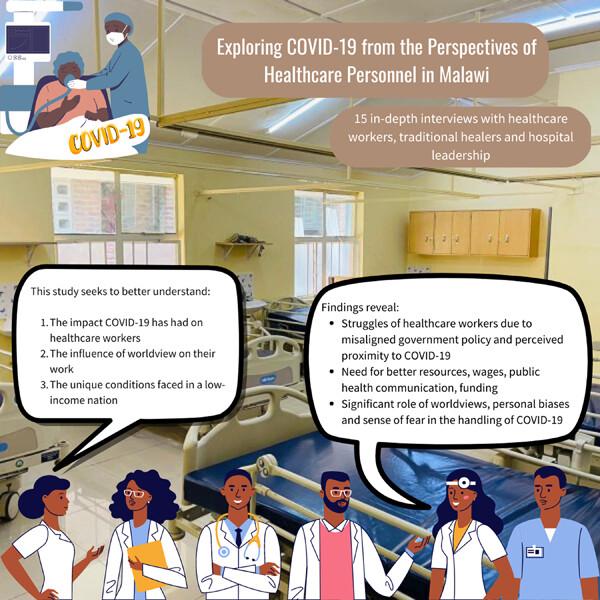Exploring COVID-19 from the perspectives of healthcare personnel in Malawi
Abstract
Background
The Coronavirus 2019 disease (COVID-19) brought many healthcare systems around the world to the point of collapse all the while putting the lives of healthcare workers at risk. This study forgoes an institutional look at healthcare to center individual healthcare personnel in Malawi to better understand (1) how the worldviews of healthcare workers impact their work in the context of COVID-19, (2) how COVID-19 impacted healthcare workers, and (3) the unique conditions faced by being a healthcare worker in a low-income nation.
Methods
This research uses a hermeneutic phenomenological approach to qualitative methodology involving in-depth interviews (n = 15) with healthcare workers, traditional healers, and hospital leadership. The data collected were inductively coded and analyzed using the framework method, producing rich descriptions on how COVID-19 impacted the lifeworlds of healthcare workers in Malawi.
Results
The findings reveal many of the struggles healthcare workers faced due to misaligned government policy and perceived proximity to COVID-19; outline their needs such as wanting better resources, funds, wages, and public health communication; and, exemplify the significant role that personal biases, worldviews, and sense of fear played in how healthcare workers perceived and interacted with COVID-19.
Conclusion
Much of what was said echoes beyond borders, reflecting common global sentiments felt by healthcare personnel, and offers directions to explore building policies, strategies, and plans in preparation for any future disease outbreaks.


 求助内容:
求助内容: 应助结果提醒方式:
应助结果提醒方式:


